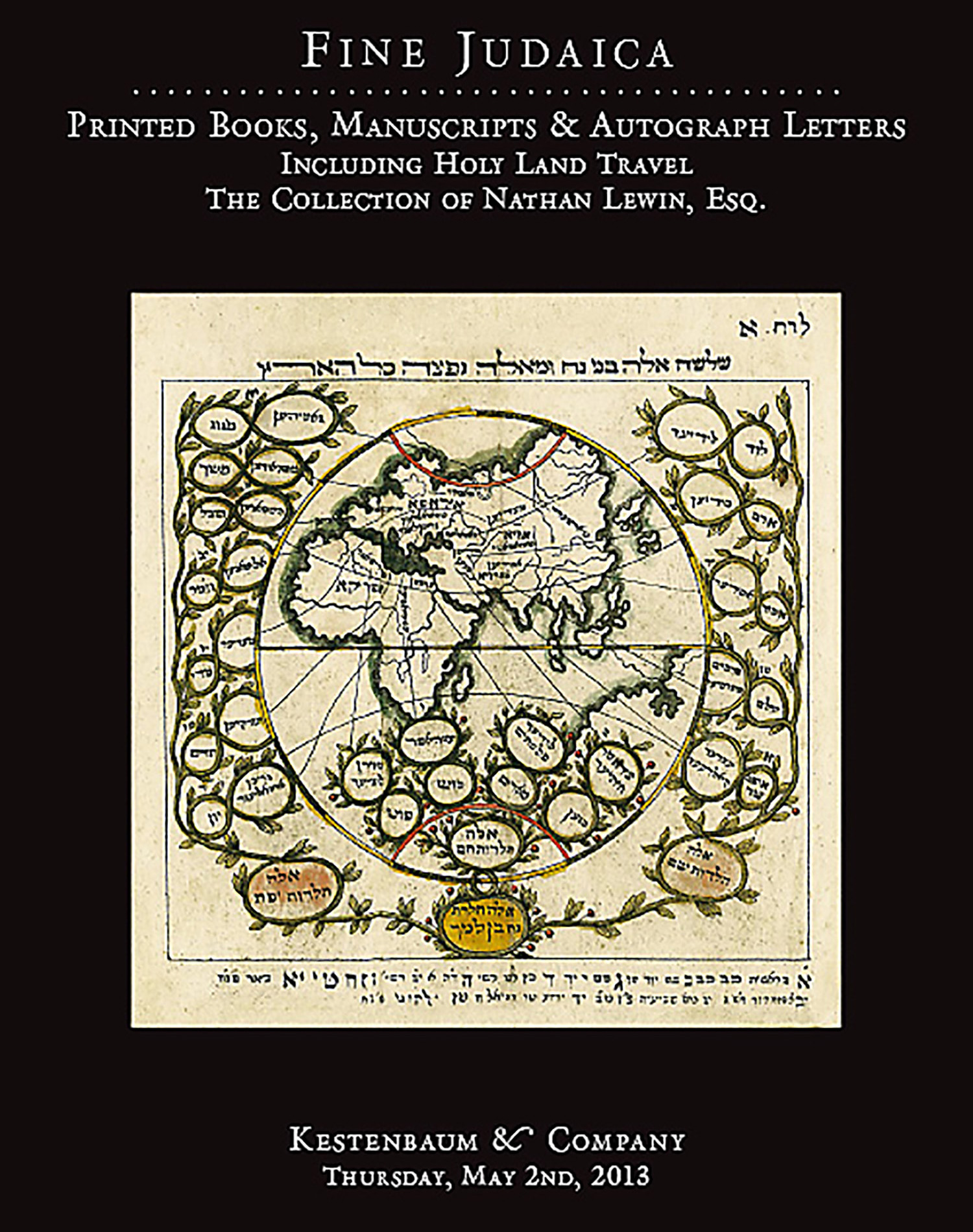Manasseh Ben-Israel. To his Highnesse the Lord Protector of the Common Wealth of England, Scotland, and Ireland, the Humble Addresses of Menasseh ben Israel, a Divine, & Doctor of Physick, in Behalfe of the Jewish Nation.

AUCTION 58 |
Thursday, May 02nd,
2013 at 1:00
Fine Judaica: Printed Books, Manuscripts and Autograph Letters
Lot 344
(ANGLO-JUDAICA).
Manasseh Ben-Israel. To his Highnesse the Lord Protector of the Common Wealth of England, Scotland, and Ireland, the Humble Addresses of Menasseh ben Israel, a Divine, & Doctor of Physick, in Behalfe of the Jewish Nation.
England: 18th-century
Est: $500 - $700
PRICE REALIZED $700
A unique calligraphic copy, in a magnificent, copperplate hand characteristic of the mid-18th century, of the case for readmission of the Jews that Manasseh presented to Cromwell upon arriving in London in 1655. The Address begins with Manasseh’s declaration of “the motives of his coming into England.” Then he proceeds to make two separate arguments: first, “How profitable the nation of the Jewes are,” and, second, “How faithfull the nation of the Jewes are.” His theological case for readmission he had made already, in his Esperança de Israel” (1650), which appeared in English as The Hope of Israel in 1652. Cromwell was firmly on his side for both religious and pragmatic reasons and Manasseh’s mission was to persuade a wider cross-section of English opinion of the economic and political advantages of tolerating Jews. His plans were derailed by “A Short Demurrer to the Jewes Long Discontinued Remitter into England,” a rebuttal of Manasseh’s Humble Address by the fanatical Puritan pamphleteer William Prynne. Manasseh countered with “Vindiciæ Judæorum, or, A Letter in Answer to Certain Questions Propounded by a Noble and Learned Gentleman, Wherein All Objections Are Candidly, and yet Fully Cleared” (1656), but it was no longer realistic to pursue a definitive resolution, and Cromwell preferred to let the situation remain vague. Rewarded for his efforts with an English state pension, Manasseh returned to the Netherlands where he died disappointed the following year. He need not however have been disappointed, since the result of the publicity that he had managed to generate was that Jews were henceforth tolerated, even if not at first technically. Implicit in the painstaking production of this curious manuscript is that his arguments remained deeply meaningful to at least one enthusiastic English philo-Semite a hundred years later.
